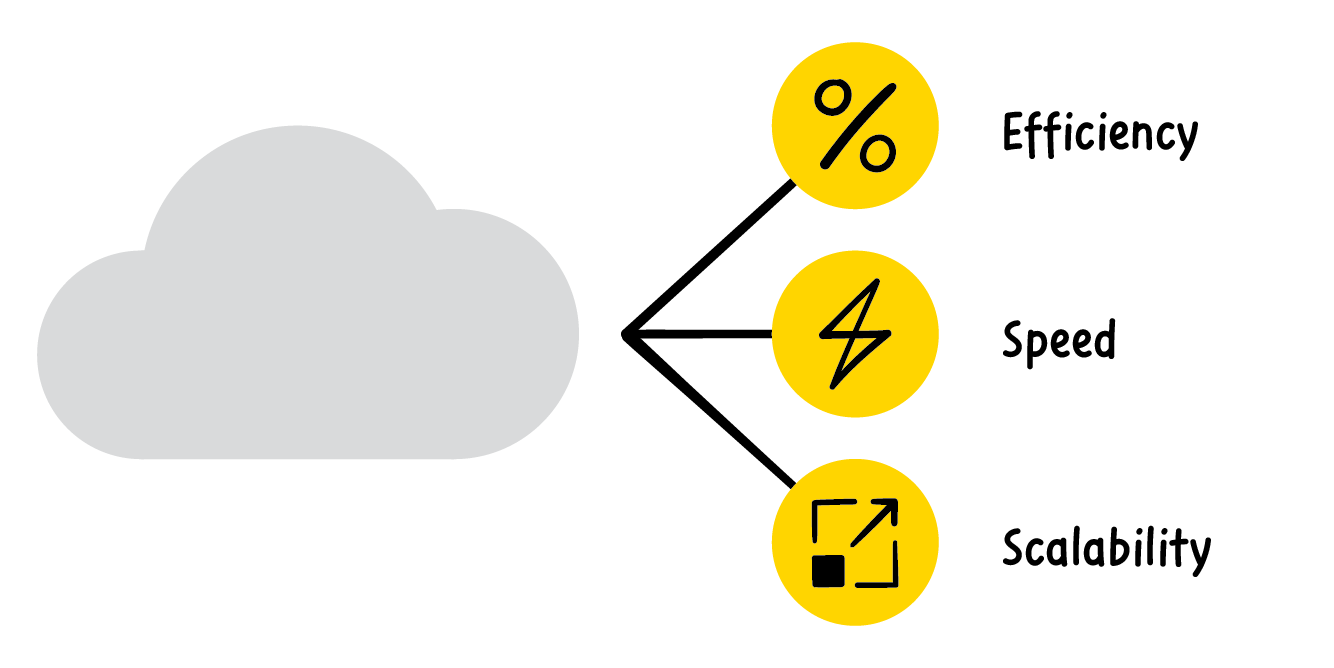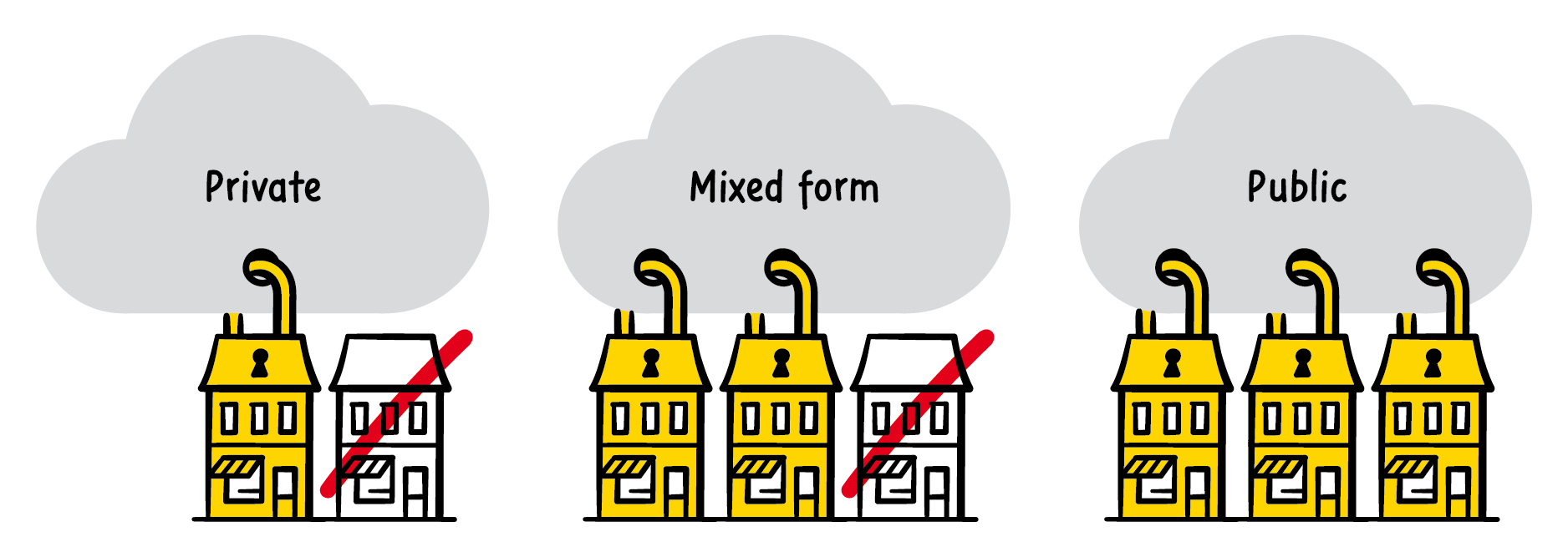
The benefits of a “data cloud”
Data processing in a cloud involves the handling, storage and transfer of data to IT infrastructures accessible over the Internet and operated by third-party providers. Cloud solutions give users round-the-clock mobile access to IT resources, such as servers and data storage or to applications like word processing software. The benefits to a municipal administration: cloud solutions offer straightforward scalability, relieve the burden on internal resources and – provided the administration works with established, reputable cloud solution providers – ensure the highest security standards.

Cloud solutions can replace in-house IT infrastructure
A major benefit of a cloud solution: thanks to external cloud solutions, administrations no longer need to operate their own expensive, high-maintenance, physical IT infrastructure. Local data backups are generally made by the cloud solution provider directly. If municipal administrations no longer require local data storage, this means they also no longer need to set up a separate, on-site server room requiring constant air conditioning and maintenance. Since the IT infrastructure in a cloud is rented, there is no need for large investment in acquisition. Moreover, increasingly speedy internet connections make it possible to work quickly with cloud applications. This is backed up by real-life examples: Barbara Gerber, Municipal Clerk for the municipality of Wiler bei Utzenstorf, is pleased with the Swiss "Dialog Cloud solution:“ “The performance when working in the cloud and getting practically everything from a single source is worth its weight in gold for us”.

Cloud solutions: experts distinguish between three categories
But which kinds of cloud solutions are available? Experts typically separate cloud services into three main categories:
- Infrastructure as a Service (IaaS): provision of virtual machines, storage and network infrastructure. IaaS solutions are ideal for administrations looking to flexibly configure their infrastructure.
- Platform as a Service (PaaS): provision of development environments and intermediary software (“middleware”) for applications.
- Software as a Service (SaaS): provision of applications operated entirely in the cloud and used via the Internet.
There are also different ways of using the cloud. We broadly distinguish between public cloud environments used by multiple customers, and the private cloud, which is provided to just one customer by the third-party provider.
Municipalities need to comply with cantonal data protection provisions
But which kinds of cloud solutions are suitable for municipal administrations, and what is the situation in terms of data protection? It’s useful to know that the new Federal Act on Data Protection came into force on 1 September 2023. However, it is primarily the respective data protection laws of each canton that apply to the public tasks of the municipalities. The principles of lawfulness, proportionality and data security are embedded in the legislation of every canton. Essentially all software used by municipalities must be constituted in such a way that it provides for the lawful, secure processing of data. If it is connected to other systems or the Internet, there must be suitable mechanisms in place to prevent the application and the personal data stored in it from being attacked externally.
Major challenges for administrations
One thing is clear: moving data processing to the cloud poses major challenges to the public administration of the Confederation, cantons and municipalities. In addition to personal data, other sensitive data that is subject to official secrecy or the interests of state security may also be affected. It’s important to work with application providers, operating service providers, privacy groups and political leaders to develop solutions that take all relevant aspects into account sufficiently.
Cloud enables digital transformation
Swiss Post uses cloud services, for instance, to boost its efficiency, to offer innovative services and to propel digital transformation. Data processing tasks are being moved to the cloud owing to flexible scalability, availability and security requirements, and for cost-related reasons.
Dialog Cloud: the solution for public administrations
With Dialog Cloud, Swiss Post offers over 200 customers an effective solution tailored to the public sector. It provides secure, efficient and flexible cloud IT infrastructure that meets requirements today and will do so in the future. Through Swiss Post, municipalities are able to access cloud services from a single source as well as municipal software solutions, which means they have a single point of contact for IT infrastructure and software products. Dialog Cloud offers services from the private cloud and the public cloud. This gives administrations access to a hybrid cloud that combines the benefits of the two. They ensure the control over data and security of a private cloud, as well as the convenience and cost benefits of a public cloud. Data backups in the Swiss Alps are an option.

Municipality clerk: “Nowadays, all data is stored centrally”
Stefan Schmidt, Municipality Clerk for the municipality of Salgesch (Valais), has this to say about the Dialog Cloud solution: “The fact that we can handle all administrative tasks and processes with a single solution allows us to work very efficiently. The reduced number of interfaces and the advantage of having one contact person makes our everyday administrative work much easier”. He adds: “All data is now stored centrally and easy to find at any time, and sending documents back and forth multiple times is a thing of the past”.
Want more information?
Check out our Dialog Cloud website and find out how our cloud solutions can support your administration.



